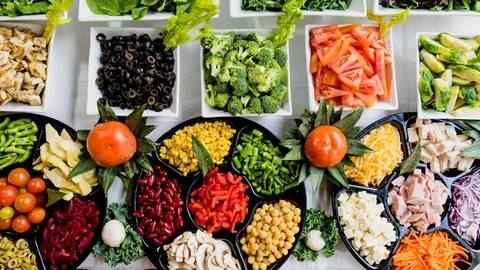Protein-Packed Perfection: Fueling Your Body with Lean Proteins
In the realm of nutrition, protein stands as a fundamental pillar, essential for supporting various bodily functions and maintaining overall health. “Protein-Packed Perfection” celebrates the significance of lean proteins in fueling the body, promoting muscle growth and repair, and sustaining energy levels. Let’s explore the importance of lean proteins and how they contribute to a balanced and nourishing diet.
Understanding Lean Proteins:
Lean proteins are a category of foods that are low in fat and high in protein content. They provide essential amino acids, the building blocks of protein, which are crucial for the growth, repair, and maintenance of tissues in the body. Unlike fatty cuts of meat or processed meats, lean proteins offer a concentrated source of protein without excess calories or unhealthy fats.
The Benefits of Lean Proteins:
- Muscle Growth and Repair: Protein is essential for building and repairing muscle tissue, making it particularly important for athletes, active individuals, and those looking to maintain muscle mass as they age.
- Satiety and Weight Management: Protein is more filling than carbohydrates or fats, helping to promote feelings of fullness and reduce overall calorie intake. Including lean proteins in meals and snacks can support weight management goals by curbing hunger and preventing overeating.
- Blood Sugar Regulation: Protein can help stabilize blood sugar levels and prevent spikes and crashes in energy levels, making it a valuable component of balanced meals and snacks.
- Bone Health: Adequate protein intake is important for maintaining bone health and reducing the risk of osteoporosis, especially when combined with other bone-supporting nutrients like calcium and vitamin D.
- Supporting Overall Health: Lean proteins provide essential nutrients such as iron, zinc, and B vitamins, which are important for immune function, energy production, and overall well-being.
Incorporating Lean Proteins Into Your Diet:
- Choose Quality Sources: Opt for lean sources of protein such as poultry, fish, seafood, lean cuts of beef or pork, tofu, tempeh, legumes, and low-fat dairy products.
- Balance Your Plate: Aim to include a serving of lean protein with each meal to help balance your plate and support satiety and satisfaction. Pair lean proteins with a variety of colorful vegetables, whole grains, and healthy fats for a well-rounded meal.
- Experiment with Cooking Methods: Get creative in the kitchen and experiment with different cooking methods to prepare lean proteins. Try grilling, baking, broiling, sautéing, or slow cooking to bring out the natural flavors and textures of your favorite protein sources.
- Include Protein-Rich Snacks: Incorporate protein-rich snacks into your daily routine to keep hunger at bay and maintain energy levels between meals. Opt for options like Greek yogurt, cottage cheese, hard-boiled eggs, nuts, seeds, or protein bars.
- Prioritize Variety: Rotate your protein sources regularly to ensure you’re getting a wide range of nutrients and flavors in your diet. Incorporate a variety of animal and plant-based proteins to reap the benefits of different amino acid profiles and micronutrient content.
In Conclusion:
“Protein-Packed Perfection” highlights the importance of lean proteins in fueling the body, supporting muscle growth and repair, and promoting overall health and well-being. By prioritizing lean protein sources and incorporating them into balanced meals and snacks, we can nourish our bodies with the essential nutrients they need to thrive. So, savor the delicious flavors and nutritional benefits of lean proteins, and enjoy the countless ways they contribute to a healthy and vibrant lifestyle.
